In our daily work or in interpersonal conversations, we often hear statements like “I can’t do it” or “It won’t work.” Such sentences often reflect blockades that seem insurmountable. This is precisely where the word “yet” can make a crucial difference.
Problems are solutions that have not yet been found.
With the simple addition of “yet”, you not only change the meaning of a sentence, but also the perspective of the person you are talking to. Instead of just confirming the problem, you can steer the conversation in a growth-oriented direction. Instead of “The problem is unsolvable”, you could say: “We have not yet found a way to solve this problem.”
This approach gives you the impetus to continue looking for solutions instead of focusing on the apparent hopelessness. Problems are not insurmountable obstacles – they are challenges that have not yet been solved, blockades that have not yet been overcome, and weaknesses that have not yet been developed into strengths.
From problem to potential: emphasizing opportunities and possibilities
Instead of focusing on the burden and difficulty of a task or situation, the two words “not yet” help to focus attention on the potential, opportunities and possibilities. This simple phrase promotes a constructive, future-oriented attitude that strengthens confidence in one’s own development.
Examples:
- “I can’t do it” becomes “I don’t know how to do it yet.”
- “The team hasn’t found a solution yet” becomes “The team hasn’t found a solution yet.”
The right dosage: encouragement instead of pressure
It is important to use “not yet” in a targeted and measured way. Your counterpart should understand it as an encouraging invitation to discover new opportunities and to focus on possibilities. Otherwise, if used too often or inappropriately, it could be perceived as pressure. When used correctly, “not yet” transforms the energy from a static “can’t” to a dynamic “soon can”.
Conclusion: a question of perspective
Using “not yet” changes not only the words but also the attitude and self-image of the person you are addressing. It helps to shift the focus from the problem to the potential and encourages people to recognize that progress is possible – whether it is a personal goal or a professional challenge.
Would you like to find out more?
In our training and consulting, we integrate these and many other Minimax interventions that can achieve great changes with minimal effort. Find out how you can strengthen motivation and resilience in your team and environment with small linguistic impulses such as “not yet”.
Contact us now and discover how we can work together to develop individual solutions that achieve positive changes in your organization through scientifically sound approaches.



